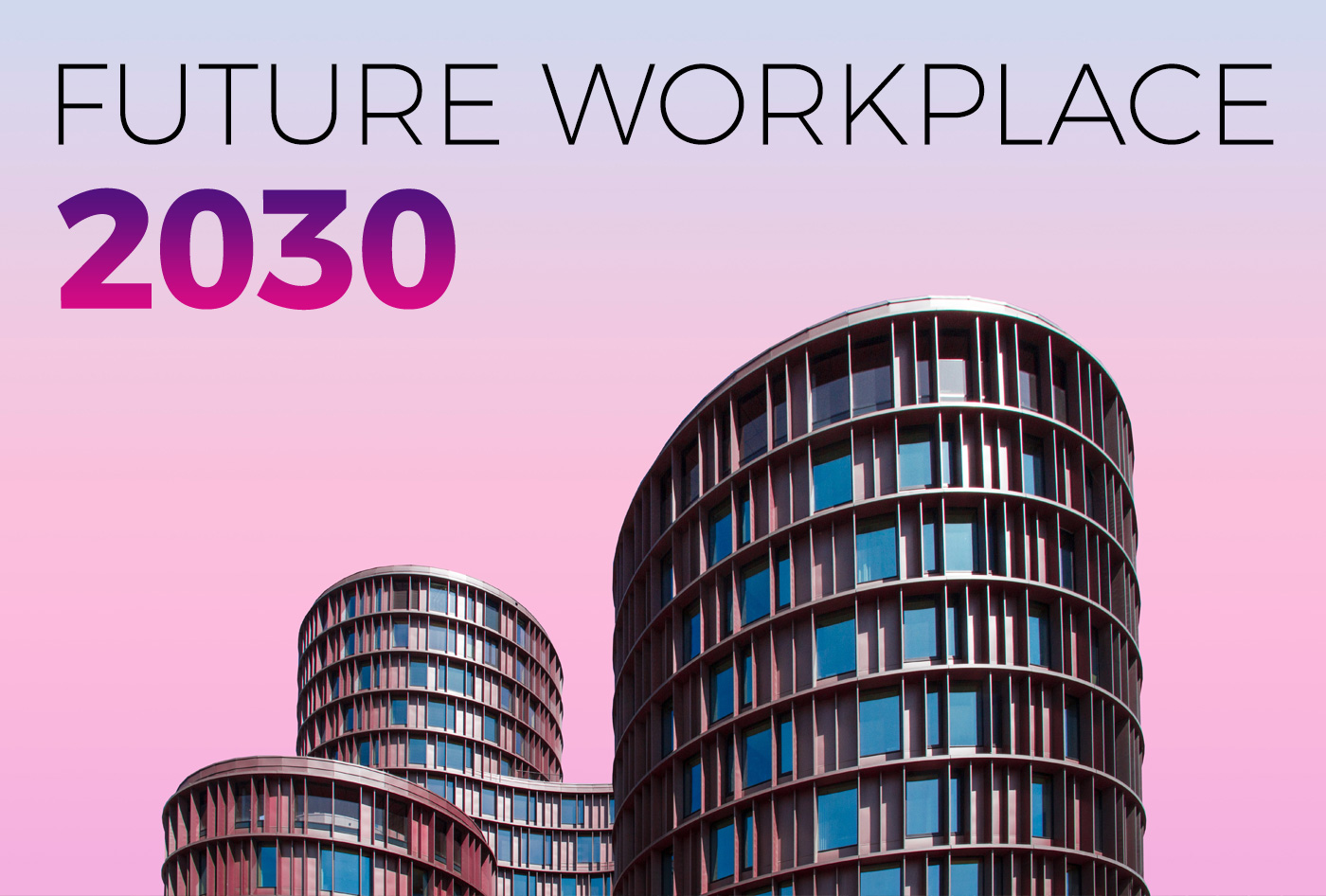Workplace 2030
Employee expectations of what a workplace should be are constantly evolving. A recent survey from PWC found that 37 per cent of workers are concerned that automation will put their jobs at risk, and 73 per cent are willing to learn new skills or re-train to remain employable. This is a reflection of the pace at which our workforce is changing, with a knock-on effect of workplaces needing to match that change.
This evolution is exacerbated by disrupting forces entering the workspace: a workforce with a greater age range, implementation of technology, and greater demand for social responsibility. This rapid pace of change demands flexible office spaces which can adapt in real-time.
The requirement to make all processes more efficient is set to sky-rocket. Smart buildings and the Internet of Things will lead to workspaces that are highly interconnected and adjust fluently to their occupants. As smart technologies take over tasks previously carried out manually, the roles required in FM will change. Those responsible for maintaining the interconnected buildings will be experts in both technology and office design. We will see more fully serviced office spaces since sourcing and fitting new buildings or retrofitting old ones will become uncompetitive.
We have already seen the rise of flexible working, hot-desking, and coworking spaces. Flexible offices are the beginning of the transition from the dichotomy between ‘office’ and ‘home’ to a working space which is a part of a community. These spaces may play a far more community-focused, multi-usage role.
This will reflect the change in usage we have already seen - higher density and greater utilisation of spaces, more varied demands, and access hours reaching towards being 24/7. The community-focused spaces will aid the move towards less hierarchical organisational models. They will also be spaces designed to hone innovation and creativity.
Working for a long-term future means creating ever more sustainable workplaces. Flexible working will play a significant role in this as use of these workplaces allow organisations to grow with a smaller carbon footprint. Pollution from long commutes can also be avoided as coworking spaces will allow for satellite offices in areas where talent is located.
Mental health issues are the greatest single factor resulting in sick leave today and one of the main reasons cited is burnout. Creating spaces which adapt to workers comfort needs and ensuring the necessary resources for all types of work will become a seamless process in the future workplace.
The technologically integrated, community workplace is key for creating this interesting, creative, and comfortable environment. Office management and design is an underappreciated art, with many organisations still seeing it as a one-off task to be complete on moving in to a new office. Corporations can move past stagnation by taking inspiration from new, expertly designed and managed creative spaces. In the next decade we will only see this potential flourish.

